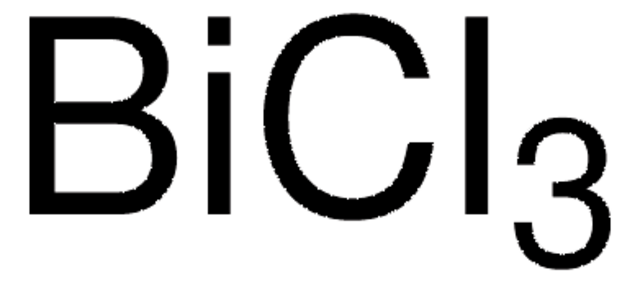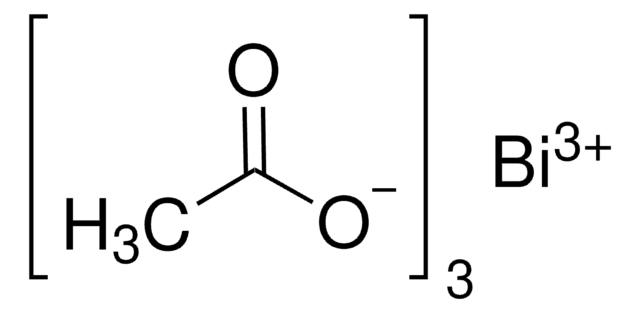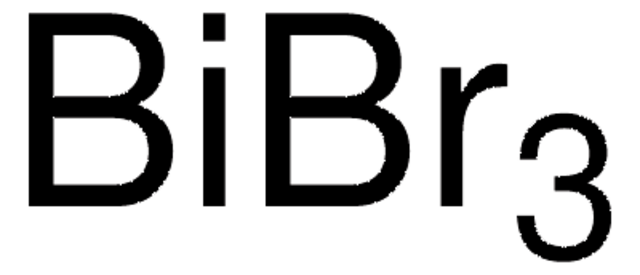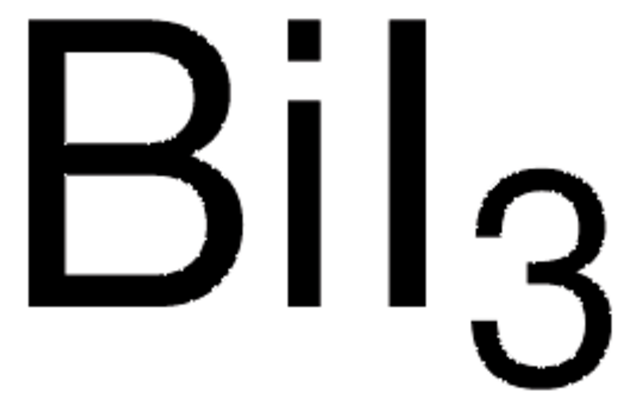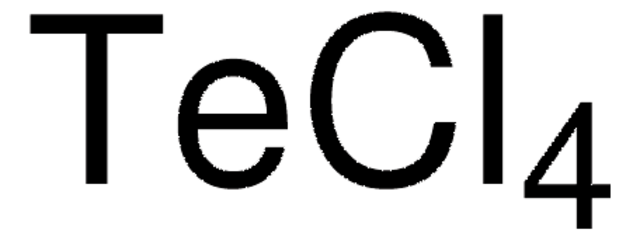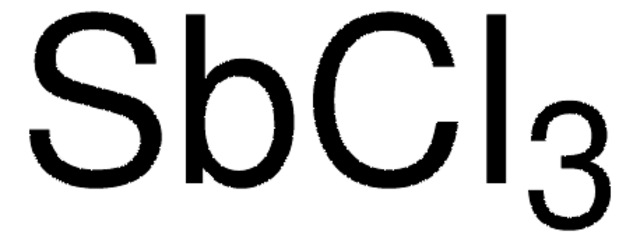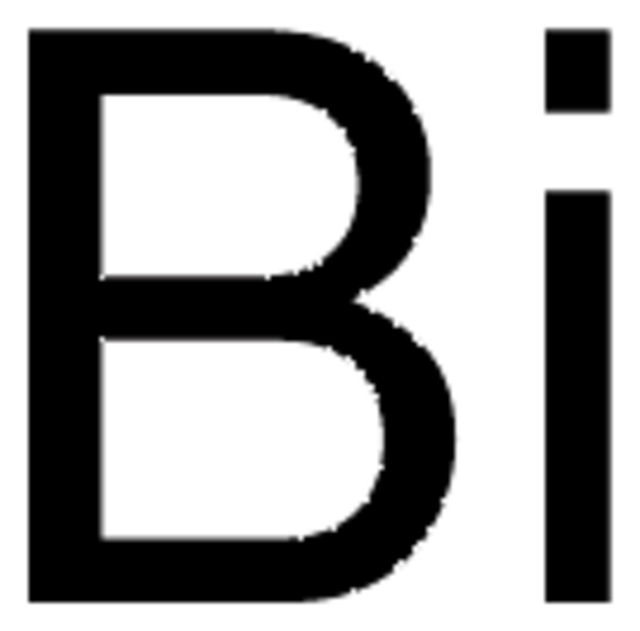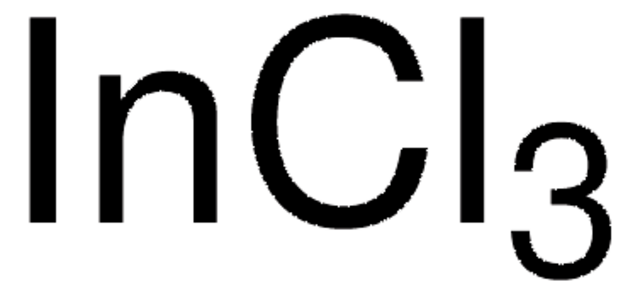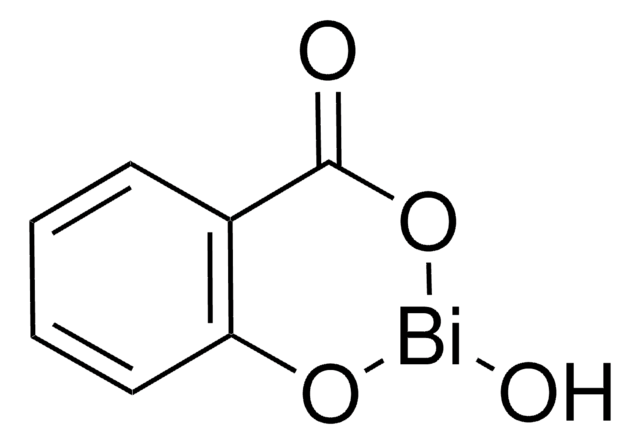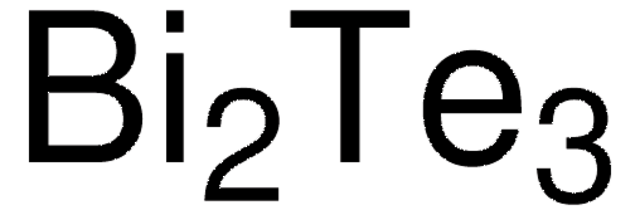254142
Bismuth(III) chloride
99.99% trace metals basis
Synonym(s):
Bismuth trichloride, Trichlorobismuth
About This Item
Recommended Products
Quality Level
Assay
99.99% trace metals basis
form
solid
reaction suitability
reagent type: catalyst
core: bismuth
impurities
≤150.0 ppm Trace Metal Analysis
bp
447 °C (lit.)
mp
230-232 °C (lit.)
SMILES string
Cl[Bi](Cl)Cl
InChI
1S/Bi.3ClH/h;3*1H/q+3;;;/p-3
InChI key
JHXKRIRFYBPWGE-UHFFFAOYSA-K
Looking for similar products? Visit Product Comparison Guide
General description
Application
- As a precursor to prepare polyaniline and bismuth(III) telluride nanohybrids with high thermoelectric performance.
- As a starting material to synthesize visible light absorbing double perovskite semiconductors, such as Cs2AgBiBr6 and Cs2AgBiCl6, eco-friendly alternative to the lead halide perovskites.
- To form a protective layer on anode materials.
- Chalcones by Claisen–Schmidt reaction under solvent-free conditions.
- One-pot three-component synthesis of Propargylamines.
- Coumarins via ultrasound‐assisted Pechmann condensation of phenols with β‐ketoesters.
Signal Word
Warning
Hazard Statements
Precautionary Statements
Hazard Classifications
Eye Irrit. 2 - Skin Irrit. 2
Storage Class Code
11 - Combustible Solids
WGK
WGK 2
Flash Point(F)
Not applicable
Flash Point(C)
Not applicable
Personal Protective Equipment
Choose from one of the most recent versions:
Already Own This Product?
Find documentation for the products that you have recently purchased in the Document Library.
Customers Also Viewed
Articles
Thermoelectric Performance of Perovskite-type Oxide Materials
The prevailing strategies for heat and electric-power production that rely on fossil and fission fuels are having a negative impact on the environment and on our living conditions.
Our team of scientists has experience in all areas of research including Life Science, Material Science, Chemical Synthesis, Chromatography, Analytical and many others.
Contact Technical Service